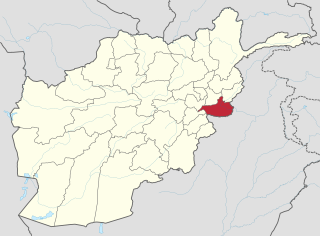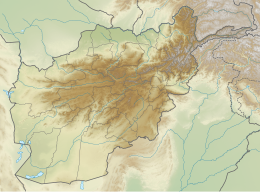
The 1982 Salang Tunnel fire occurred on 3 November 1982 in Afghanistan's Salang Tunnel during the Soviet–Afghan War. Details are uncertain and officially the number of casualties was recorded as between 168–176 Soviet and Afghan soldiers and civilians. Despite this, contemporary Western media said the incident may have been the deadliest known road accident, and one of the deadliest fires of modern times, with the death toll estimated at 2,700 to 3,000 people, including 700 Soviet soldiers.

The Salang Tunnel is a 2.67-kilometre-long (1.66 mi) tunnel located at the Salang Pass in northern Parwan Province of Afghanistan, about 90 km (56 mi) north of the nation's capital, Kabul. At nearly 3,200 m (10,500 ft) above sea level, the tunnel work was originally completed by the Soviet Union in 1964.

The Salang Pass is the primary mountain pass connecting northern Afghanistan with Parwan Province, with onward connections to Kabul Province, southern Afghanistan. Located on the border of Parwan Province and Baghlan Province, it is just to the east of the Kushan Pass, and both of them were of great importance in early times as they provided the most direct connections between the Kabul region with northern Afghanistan or Tokharistan. The Salang River originates nearby and flows south.

The 2010 Salang avalanches consisted of a series of at least 36 avalanches that struck the southern approach to the Salang Tunnel, north of Kabul. They were caused by a freak storm in the Hindu Kush mountains.
These are the list of Terrorist attacks in Pakistan in 2010.
On 31 May 2017, a truck bomb exploded at a crowded intersection in Kabul, Afghanistan, near the German embassy at about 08:25 local time during rush hour, killing over 150 and injuring 413, mostly civilians, and damaging several buildings in the embassy. The attack was the deadliest terror attack to take place in Kabul. The diplomatic quarter—in which the attack took place—is one of the most heavily fortified areas in the city, with three-meter-high (10 ft) blast walls, and access requiring passing through several checkpoints. The explosion created a crater about 4.5 meters (15 ft) wide and 30 feet deep. Afghanistan's intelligence agency NDS claimed that the blast was planned by the Haqqani Network. Although no group has claimed responsibility, the Afghan Taliban were also a suspect but they denied involvement and condemned the attack. It was the single largest attack on the city up till that point.

The Islamic State–Taliban conflict is an ongoing insurgency waged by the Islamic State – Khorasan Province (IS-KP) against the Taliban regime in Afghanistan. The conflict initially began when both operated as rival insurgent groups in Nangarhar; since the formation of the Taliban's state in 2021, IS-KP members have enacted a campaign of terrorism targeting both civilians and assassinating Taliban members using hit-and-run tactics. The group have also caused incidents and attacks across the border in Pakistan.

On 18 October 2019, a bombing occurred in a mosque in Haska Meyna District, Nangarhar province, Afghanistan, killing at least 73 worshippers. Dozens more were injured in the attack. No group has claimed responsibility.
In May 2020, a series of insurgent attacks took place in Afghanistan, starting with the Taliban killing 20 Afghan soldiers and wounded 29 others in Zari, Balkh and Grishk, Helmand on 1 and 3 May, respectively. On 12 May, a hospital's maternity ward in Kabul and a funeral in Kuz Kunar (Khewa), Nangarhar were attacked, resulting in the death of 56 people and injuries of 148 others, including newborn babies, mothers, nurses, and mourners. ISIL–KP claimed responsibility for the funeral bombing, but no insurgent group claimed responsibility for the maternity ward shooting.
On 8 May 2021, a car bombing, followed by two more improvised explosive device (IED) blasts, occurred in front of Sayed al-Shuhada school in Dashte Barchi, a predominantly Shia Hazara area in western Kabul, Afghanistan, leaving at least 90 people dead and 240 injured. The majority of the casualties were girls between 11 and 15 years old. The attack took place in a neighborhood that has frequently been attacked by militants belonging to the regional Islamic State – Khorasan Province (IS-K) over the years.
Events in the year 2022 in Afghanistan.
The Boksburg explosion took place on 24 December 2022, when a fuel tanker carrying liquefied petroleum gas (LPG) exploded underneath a railway bridge in Boksburg, in the Ekurhuleni Metropolitan Municipality in Gauteng, South Africa, with a death toll of 41 people as of 18 January 2023. Nearby infrastructure was damaged by the explosion.
On 15 October 2024, a fuel tanker exploded in Majiya, Jigawa State, Nigeria, killing 209 people and injuring 124 others.





